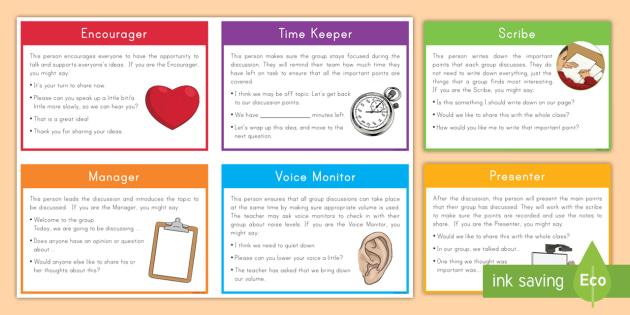Lake Chad Basin Polio Eradication Bulletin: A Critical Update from WHO Regional Office for Africa
The struggle against polio in the Lake Chad Basin region remains a pressing health challenge, as the global community intensifies its efforts to eradicate this debilitating disease. In a recent bulletin released by the World Health Organization’s Regional Office for Africa, key updates on vaccination campaigns, surveillance initiatives, and emerging threats have been highlighted, underscoring the importance of continued vigilance and collaboration. The Lake Chad Basin, which encompasses parts of Nigeria, Niger, Chad, and Cameroon, has been a focal point for health authorities in their quest to eliminate polio, particularly amidst ongoing conflicts and logistical hurdles. This article delves into the latest developments from the WHO, reflecting on the progress made and the obstacles still faced in the mission to protect children from polio-related disabilities in this vital region.
Progress and Challenges in Polio Eradication Efforts in the Lake Chad Basin
The polio eradication efforts in the Lake Chad Basin have made significant strides, with the commitment of local governments and the international community driving initiatives. Vaccination campaigns have been intensified, reaching millions of children in vulnerable communities. Recent data highlights the following progress:
- Increased Vaccination Coverage: An uptick in the number of vaccinated children from 70% to 85% in critical areas.
- Surveillance Improvement: Enhanced surveillance mechanisms have allowed for quicker identification of polio cases, aiding rapid response efforts.
- Community Engagement: Local leaders and health workers have mobilized communities, fostering greater acceptance of vaccinations.
However, challenges persist in this multifaceted fight against poliovirus transmission. Access to certain regions remains hampered by ongoing conflict, while vaccine hesitancy and misinformation pose significant hurdles. Key challenges identified include:
- Access Limitations: Continued violence disrupts vaccination campaigns in inaccessible areas.
- Misinformation: Public concerns regarding vaccine safety and effectiveness contribute to hesitance among parents.
- Logistical Hurdles: Supply chain disruptions complicate the timely delivery of vaccines and medical supplies.
| Challenge | Impact | Mitigation Strategy |
|---|---|---|
| Access Limitations | Reduced vaccination coverage | Negotiating ceasefires for health access |
| Misinformation | Low community uptake of vaccines | Enhanced communication strategies |
| Logistical Hurdles | Delay in vaccination campaigns | Strengthening supply chain partnerships |
Innovative Strategies and Community Engagement in Combating Polio Outbreaks
The fight against polio in the Lake Chad Basin has seen a surge in innovative strategies aimed at effectively curbing outbreaks amidst challenging environments. Community engagement plays a critical role in this initiative, with local leaders harnessed as ambassadors for vaccination campaigns. Key strategies include:
- Mobile Vaccination Units: Deploying agile teams equipped to reach remote areas and ensure that no child misses out on vaccination.
- Public Awareness Campaigns: Utilizing radio broadcasts and community gatherings to educate families on the importance of immunization.
- Partnerships with NGOs: Collaborating with non-governmental organizations to facilitate outreach programs and track vaccination progress.
Moreover, the introduction of data-driven approaches has been pivotal in enhancing outreach efforts. Real-time tracking of vaccination coverage has enabled health officials to identify and address gaps effectively. A recent analysis revealed that areas with community-driven initiatives showed a significant increase in vaccination rates, as illustrated in the table below:
| Community Initiative | Vaccination Rate (%) | Area |
|---|---|---|
| Mobile Clinics | 95 | Borno |
| Household Visits | 90 | Yobe |
| Community Workshops | 85 | Lake Region |
The collaborative efforts between government bodies, NGOs, and community stakeholders are proving to be instrumental in the ongoing battle against polio, demonstrating a unified commitment to safeguard future generations.
Call to Action: Strengthening Regional Collaboration to Achieve Polio-Free Status
In the ongoing battle against polio, strengthening partnerships among nations surrounding the Lake Chad Basin has never been more crucial. Collaborative efforts can lead to the accelerated sharing of resources, knowledge, and strategies that have proven successful in combating vaccine-preventable diseases. By uniting efforts, countries can effectively address the unique challenges posed by the region’s diverse healthcare landscapes, ensuring that vaccination campaigns reach the most vulnerable populations without delay. Key actions to consider include:
- Joint Vaccination Days: Coordinated immunization efforts across borders to maximize coverage.
- Data Sharing Platforms: Implementing systems for real-time data exchange among national health authorities.
- Cross-Border Health Initiatives: Encouraging health professionals to work together for training and resource allocation.
The commitment to a polio-free future is not solely a governmental responsibility; communities must play a pivotal role. Engaging local leaders and influencers can enhance public trust and mobilize grassroots support for vaccination campaigns. Recognizing the importance of communication, countries need to invest in community-driven awareness programs to dispel myths around vaccines and promote their benefits. Here’s a quick overview of how community engagement can be structured:
| Strategy | Goal |
|---|---|
| Community Workshops | Increase awareness and foster dialogue |
| Involvement of Local Leaders | Build trust in vaccination efforts |
| Social Media Campaigns | Reach a wider audience with positive messaging |
To Wrap It Up
In conclusion, the ongoing efforts to eradicate polio in the Lake Chad Basin are a testament to the resilience and determination of health authorities and communities across the region. As highlighted in the latest bulletin from the World Health Organization’s Regional Office for Africa, significant strides have been made, but challenges remain. Continued vigilance, vaccination campaigns, and international support are crucial to maintaining momentum in this fight against polio. The progress documented not only serves as a beacon of hope for millions but underscores the urgent need for collaborative action. As stakeholders gear up for future initiatives, the commitment to ending polio in the Lake Chad Basin remains unwavering. Together, we can ensure a healthier future for generations to come.

